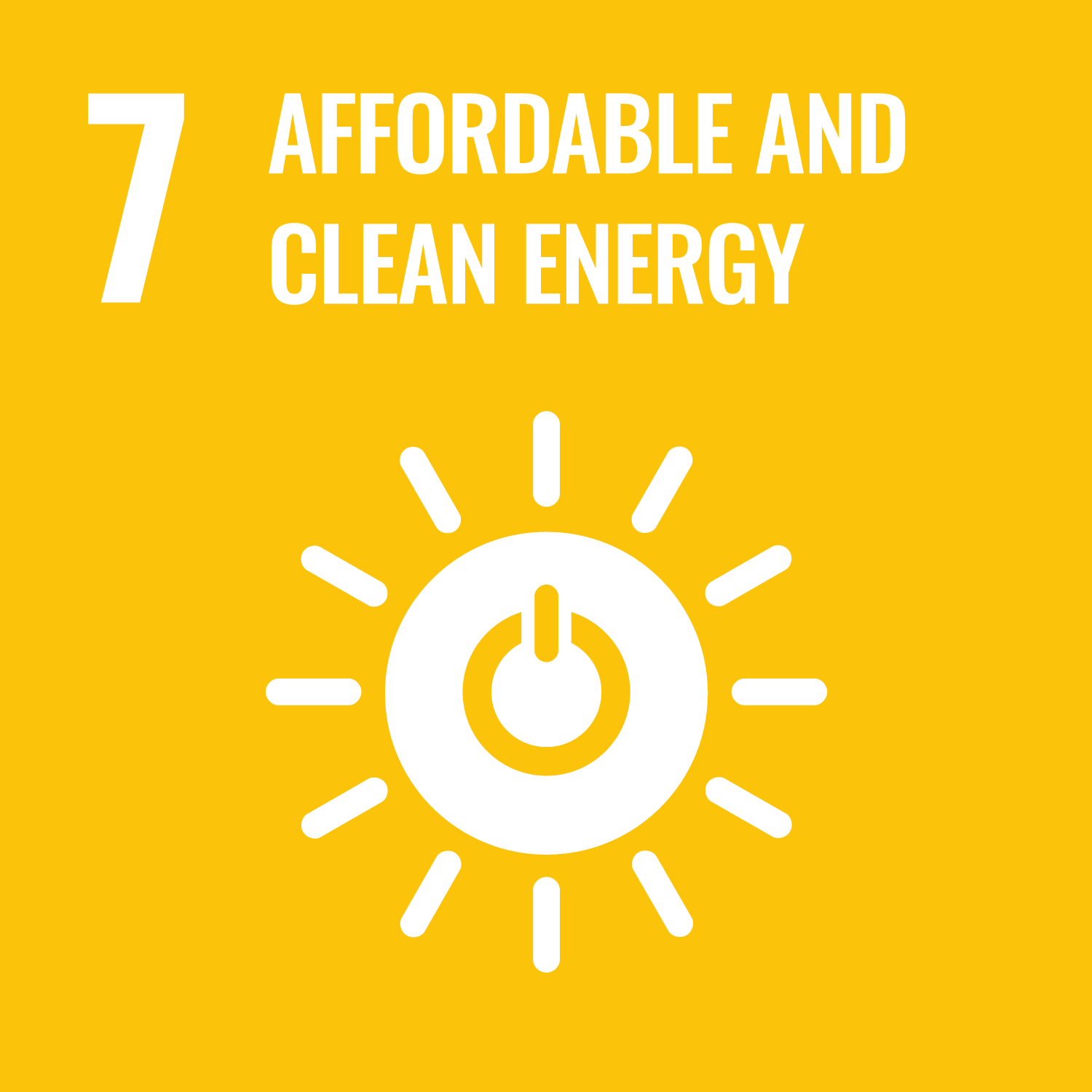目標7:可負擔的潔淨能源

AFFORDABLE CLEAN ENERGY MANAGEMENT AND ENERGY USE
The energy (GJ) used per square meter of floor space of the university buildings in 2020 was about 19,425,140KWh/215,268m2 = 90.23 KWh/m2. Our school has adopted the Administrative Guidelines for Applying for and Approval of the Green Building Label and the Administrative Guidelines for Application Reviews, Approvals, and Use of the Smart Building Label as the basis for its energy-saving policy specifications for new construction.
Each year, we develop a new energy-savings improvement plan. For example, in 2020, 370 energy-saving controllers were installed on individual air-conditioning units. The teaching and research building replaced old bulbs with 6230 energy-saving LED lamps. Many old air conditioners were replaced with new, high-efficiency air conditioners. For example, the 6th teaching building replaced 35 separate conditioners, the Hongyu Building replaced two window unit air conditioners, and the second, third, and fourth teaching buildings replaced a total of 108 air conditioners.
Solar panels installed on the roofs of certain buildings generated a total of 60,706 KWh in 2020. In 2020, plans were made to add 99 kWp solar panels on the roof of the library. The use and maintenance of official vehicles was strictly controlled to reduce gasoline usage and carbon dioxide emissions.
In accordance with the school’s energy management measures, an energy conservation promotion group was established. The group meets regularly to set energy conservation goals and implementation plans, and supervises and evaluates the energy conservation goals and the formulation, implementation, and effectiveness reviews of energy conservation plans for all units of the school.
Energy wastage reviews are carried out by consolidating statistics on the electricity consumption data of each area's electricity meters, reviewing the areas with the highest energy usage, and formulating and implementing improvement methods.
The school held the 3rd meeting of the 2020 School Fund Investment and Wealth Management Mobile Group on September 23, 2020, and decided to make stock purchases in the Taiwan 50 ETF stock index fund as part of its investment plan. To buy 50 ETFs in Taiwan is to buy the top 50 listed companies in Taiwan's stock market. Overall, the major stocks in Taiwan’s stock market are known for their Corporate Social Responsibility (CSR), so by purchasing this stock, the school can effectively withdraw investment in carbon-intensive industries, especially coal, coke, and oil.
ENERGY AND THE COMMUNITY
Taipei Tech hosts more than 10 energy forums or lectures every year, including the Post-Coronavirus Era Sustainable Future Forum, the Circular Economy Course, lectures on building and air-conditioning energy-savings, etc. Approximately 43 courses are operated by the industry-academia cooperation program of the department of Energy and Refrigerating Air-Conditioning Engineering in the extension school. These courses allow students to learn about energy efficiency and clean energy. Sustainable energy mainly encompasses energy savings, carbon reductions, energy efficiency improvements, and clean energy technologies. In this context, Taipei Tech offers specialized courses and programs in conjunction with different departments to train outstanding professionals with exceptional energy management capabilities to develop sustainable energy policies in the future.
The school actively promotes green energy research and development. We are presently making an effort to incorporate research on energy-saving technologies, emissions reductions, clean technologies, electric power technology, energy monitoring, and environmental sustainability and green construction at the school. At present, we are also developing offshore wind power and maritime engineering operations and maintenance verification technology in a collaborative effort between industry, the government, and academia to build up Taiwan’s domestic green energy infrastructure. In 2020 , we made plans to hold a series of wind power technology seminars.
Taipei Tech has undertaken an average of 30 research projects per year that are geared toward improving local industry’s use of clean, efficient energy. In one of these projects, for example, we assisted AU Optronics Corporation to become a green enterprise that saved energy and reduced carbon emissions. We have provided assistance for offshore wind power that fosters and supports the low-carbon economy and set up a research center to achieve the goals of energy conservation and industrial transformation. In addition, during the decade during which Taipei Tech has conducted the New Taipei Industrial Park Project, we have been committed to continuously upgrading the industrial park. In recent years, we have worked hard to increase usage efficiency and intelligent manufacturing.
Taipei Tech supports the government’s efforts to develop clean energy and energy-efficient technologies such as offshore wind power, smart energy saving, green energy materials, etc. We implemented the Bureau of Standards’ offshore wind power project to introduce professional organizations to offshore wind power planning and design, and to gradually stabilize the offshore wind power supply system in Taiwan. We also cooperated with the Ministry of Education to execute the AI Cold Chain and Energy Decision-Making System Development Project to improve energy efficiency.
Taipei Tech is helping new enterprises to develop low-carbon energy technologies, including COZETA Energy Service Corporation’s initiative to build an air-conditioning energy management system, U&U Engineering Inc.’s eco-friendly insulating materials and “green” cement, and a smart home appliance upgrade project conducted by one of our own professors along with other telecommunications engineers. For the circular economy, we promote non-polluting waste effluent recycling technology is an advantage for bio-metal working oil, and we advocates for biomass oil reduced consumption.





 10608 台北市忠孝東路三段1號
10608 台北市忠孝東路三段1號 Tel:886-2-2771-2171#1021
Tel:886-2-2771-2171#1021